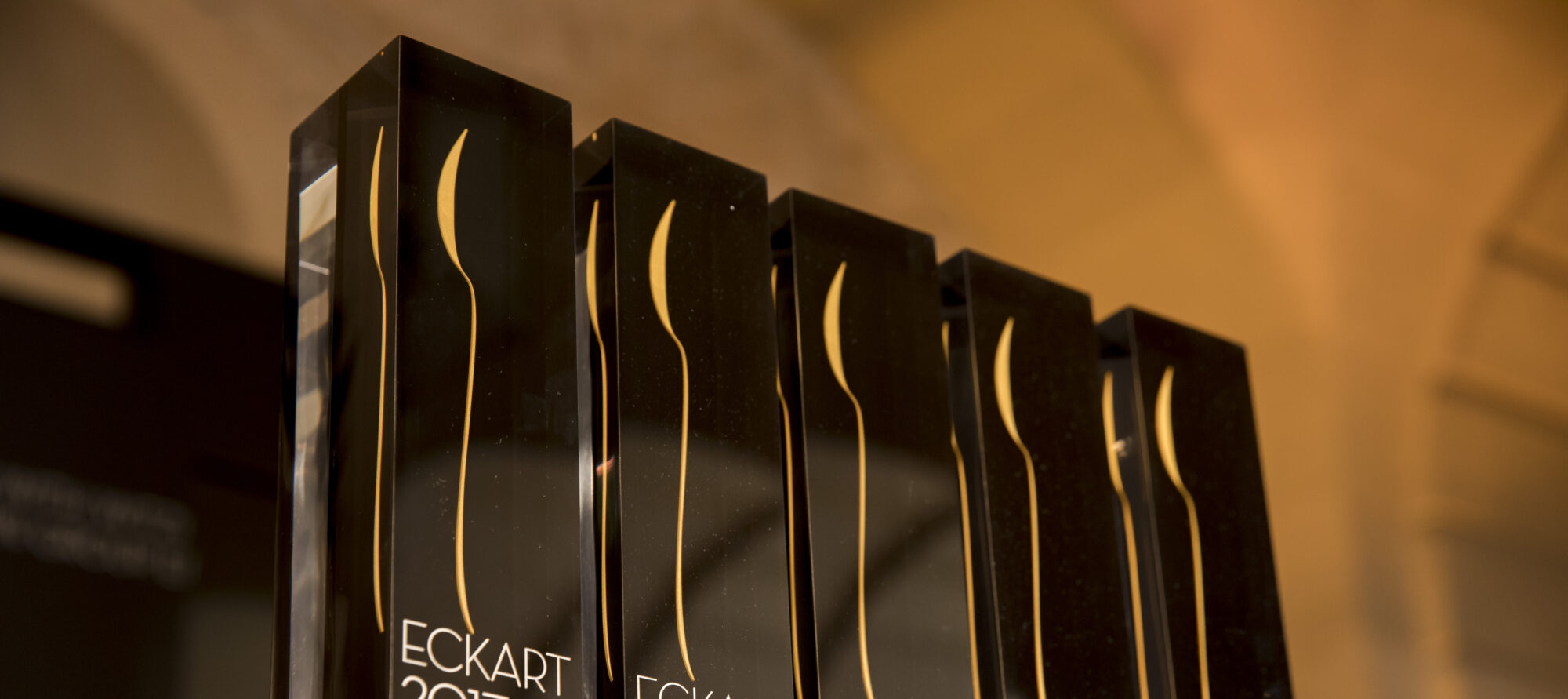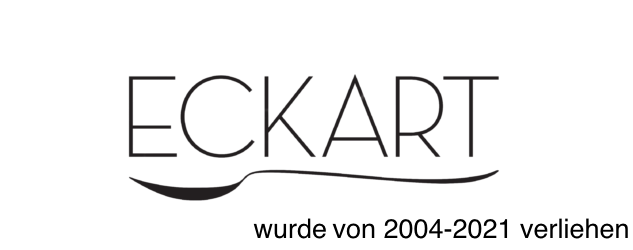2014
 INNOVATION
INNOVATION
Shuzo Kishida***: “The most important ingredient of cooking is honesty.”
Shuzo Kishida is a gentle revolutionary. He received his education in highly renowned French restaurants in Japan, before he went on to continue his career in France from the year 2000 onwards. His path led him to several absolute top-class chefs. In 2003, he worked at the famous L’Astrance in Paris, where he became sous-chef only a year later. Kishida returned to Tokyo in 2005, where he has worked at the restaurant Quintessence since 2006. In 2008, he received three Michelin stars as the youngest star-chef worldwide at the time.
At a first glance, his creations seem familiar, just like his credo:
– Respect for food
– Strict adherence to cooking processes
– Maximum precision in seasoning.
The revolutionary impact of his art unfolds at meal-time. Kishida creates culinary harmony with an almost poetic manifestation. By combining the purity of Japanese cuisine with the finesse of French cuisine, Kishida brings the best foods to their utmost expression. The result is the most innovative fusion of two traditional cooking cultures, the “quintessence” of their culinary ideas and philosophies.
The theme of harmony is even enhanced in Kishida’s restaurant Quintessence by the corresponding wines. Europe’s wine culture is highly esteemed in Japan, but exists in a world of its own, parallel to the traditionally oriented haute cuisine. Kishida and his art of cookery manage to honour wine and its history in an entirely new context and on the highest possible level.

 ART OF COOKERY
ART OF COOKERY
Heinz Reitbauer, Sr.: “Everything in good time. Not everything at every time.” Heinz Reitbauer, Jr.**: “I want to change the world in a positive way.”
Heinz Reitbauer is a radical in the most positive sense of the word. He was radical in his aspirations, when he took over a modest corner eatery in 1970 and transformed it first into a comfortable tavern, then into a world-class restaurant – with the utmost passion and maximum use of resources. Reitbauer and his wife Margarethe used the money raised in the first few years for educational culinary trips to France. Employees were sent to the land of the role models as well. The efforts paid off – in 1992, their house was rated best restaurant in Austria.
Yet, Heinz Reitbauer never forgot his Styrian roots and in 1996 also opened the Steirereck am Pogusch, an additional restaurant at the Pogusch, a remote alpine pass in Upper Styria. Within a short span of time, the tavern became a centre of authentic culinary delight and continues to shape the gastronomy of Styria and far beyond. It is considered the best alpine tavern in the world. Radically regional, but with a strong ability to see the bigger picture. The best food of the region is served on the massive wooden tables: alpine veal, from head to toe, slaughtered by the restaurant itself, venison, freshwater fish – prepared in a simple, authentic and self-evident manner, served with a down-to-earth and affectionately-attentive hospitality.
In 2005, the restaurant Steirereck moved into the former dairy in Vienna’s City Park. Heinz Reitbauer jr., who up until then had been cooking at the Pogusch, took the position of chef de cuisine. Heinz Reitbauer sr. and Margarethe have been running the tavern in Styria ever since. Heinz Reitbauer was born in Vienna and is at home in the world. He started his education in his parent’s business, then trained under Alain Chapel (Mionnay), a pioneer of the “Nouvelle Cuisine”, under Anton Mosimann (London) and under Joël Robuchon (Paris). Since spring 2005, he is the head chef of the “Steirereck”. Here in Vienna’s City Park he took a two-pronged approach: on the ground floor, in the Meierei im Stadtpark, he offers an uncomplicated bistro-cuisine with high-quality food standards. A lot of things in the Meierei revolve around the theme of milk – not so much a homage to the former function of the building, but a tribute to the big tradition of the milk industry in the whole of the alpine area and beyond.
On the first floor, Heinz Reitbauer celebrates his art of cookery, which subsists on the special appreciation of the products and respectful conduct. He combines the best food products and highest art of cookery to create one of the most innovative cuisines in the world. Heinz Reitbauer is one of the most dedicated exponents of a new generation of high-class chefs, who accept social responsibility with their work. When he took over the Steirereck, there were five varieties of sea fish and one freshwater fish on the menu, today it is the other way around. Authentic produce and variety are the prerequisites of Reitbauer’s work, which he regards as threatened by the global tendencies to standardization. He thus commits himself to biodiversity. Reitbauer regards decrees like the seed regulation as a dangerous cut in variety: “We are being robbed”, he analyses the situation concisely. In an almost humble manner, he subordinates his work to a bigger context when he says: “High-class gastronomy is not the measure of the gastronomic quality of a country, but the products as well as the restaurants who prepare them.”
 CULTURE OF LIVING
CULTURE OF LIVING
Mick Hucknall: „Food is life.“
As lead singer of Simply Red, Mick Hucknall, born in 1960, touched the hearts of his fans with his Soul music. He is a great musician and a man, who enjoys a high standard of living himself and is always committed to various projects to promote quality and sustainability. Grown up in Manchester in modest circumstances, he has been supporting the SOS-Children’s Villages since many years. Alongside his career, Hucknall, together with the actors Johnny Depp, Sean Penn and John Malkovich, established the Man Ray in Paris in 1998 – a bar-restaurant named after the surrealist all-round-artist Man Ray.More branches opened in New York and London.
Since 2000, he grows vine at the Mount Etna. His vineyard “Il Cantante” (“The singer”) focuses on local, traditional grape varieties and his wines are internationally accepted. Hucknall on his commitment: “It is an effort to strengthen the communities and to improve the reputation of certain regions so that they become more interesting economically and attract more business-people.” In Sicily, he certainly succeeded, because wine from the Etna region continues to be in high demand.
Hucknall is involved in projects at the other end of Europe as well: on a large estate on the River Finn in the north of Ireland, he supports the conservation of wild salmon that spawns in the upper reaches of the river. Hucknall’s credo: “It is important for me to give something back to the community. There are so many people in the world who need help in order to take a step forwards. I help by ensuring that things can grow.”
 CREATIVE RESPONSIBILITY AND ENJOYMENT
CREATIVE RESPONSIBILITY AND ENJOYMENT
Jon Rose: „It’s all about access.“
Even when he was a small child, Jon Rose’s favourite element was water. Grown up in Laguna Beach (California), he started a career as a professional surfer when he was 17 years old and turned into a superstar on the waves. For 13 years he travelled the world as a professional athlete. He loved the thrill, always searching for the perfect wave.
Surfing brought him to far-away lands and remote coastal regions. Back then he realized that these regions had one thing in common: no clean water for drinking and cooking. His father Jack had raised Jon’s awareness for the issue of drinking water: the carpenter had constructed collection vessels for rainwater in Africa.
“Clean water for every single person who needs it” – Jon Rose’s mission is as simple as it is convincing. After witnessing the catastrophic situation after the earthquake in Padang (Indonesia), he put all his energy into this idea. Jon Rose describes the situation: “The main problem of the destroyed city was the lack of clean water. They could not even clean out wounds.”
And so the project “waves4water” was born. The creative approach: unlike other projects, “waves4water” did not develop a cleaning system of its own but uses simple, inexpensive filters that fit into every luggage and can therefore be easily distributed. “The idea is not to have one person transport 100 filters into the areas, where clean water is needed”, Rose explains, “but to have hundreds of travellers each distribute ten filters.” This is a modern social network, which in the meantime has acquired thousands of supporters who live creative responsibility. This “humanitarian guerrilla tactic” (Rose) already helped many victims of earthquakes and tsunamis in Haiti, Japan, Pakistan and Brazil, as well as victims of hurricane Sandy, quickly and efficiently.

